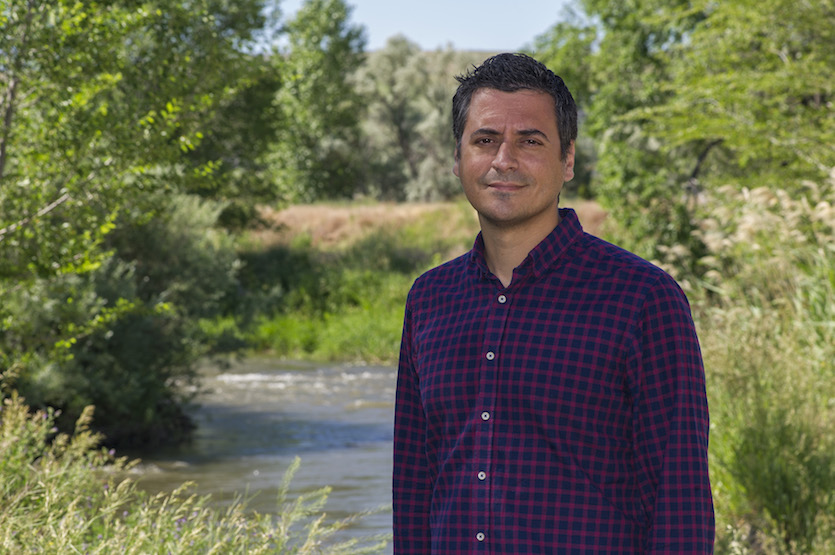Idaho State University researchers coordinate multi-nation studies of the benefits ecological systems provide
July 3, 2017

POCATELLO – Idaho State University is coordinating studies by researchers in Idaho and from around the world that examine how different societies in different ecosystems understand the economic and other benefits ecosystems provide.
In the United States, the ISU Social-Ecological Research Laboratory is studying two sites in Idaho, including the Portneuf and Treasure valleys, and watersheds in Texas, Oklahoma and Alabama. Internationally, the lab is working with researchers at two sites in Spain, and one site each in China, Sweden and South Africa.
“It is a new approach to understand that by conserving our ecosystem well, we can also maintain our economy,” said Antonio Castro, ISU biological sciences research assistant professor and director of the Social-Ecological Research Laboratory. “The focus of the effort is looking at the long-term challenge that different sites of the world have dealing with water scarcity and governance.”
Part of the lab’s effort is working with the National Science Foundation’s Managing Idaho’s Landscapes for Ecosystem Services (MILES) project that has a goal to provide science-based decision support needed to sustainably manage Idaho’s resources. The focus of the grant is understanding ecosystem services provided by Idaho´s landscapes, which are benefits that flow from ecosystems to humans that support directly or indirectly their wellbeing.
“We want to understand how when we conserve an ecosystem it is not just important because of its intrinsic value, but also because our economy is directly and indirectly supported by the way we conserve it,” Castro said. “So, for example, we may want to conserve an Idaho landscape because we like to go hunting and fishing there, but also because we know the welfare of our communities is directly and indirectly dependent on the way we conserve other benefits such as the water from aquifers or the cultural identity of local communities.”
Earlier this year Castro’s laboratory brought researchers from around the world for a Program on Ecosystem Change and Society (PECS) – Water Scarcity Workshop that examined these issues.
“The goal of the workshop was to bring together all of us and try to see how each of our expertise and experience working on different social-ecological systems can help us decide what are the main challenges for dealing with water scarcity and governance, what we need to do in the next 20 or 30 years to address these topics and make our planer more sustainable,” Castro said.
He noted that workshop participants have been working and publishing scientific papers for years on water scarcity topics, but collectively they do not have a common message. Researchers from South Africa were working with someone in Stockholm who may be working with someone in Idaho, but they weren’t all working together. These researchers have varied academic backgrounds including expertise in ecology, hydrology, political science, sociology, physical and human geography, history, public policy, urban planning, computer sciences, communication and visualization.
“We are seeing if we can provide big messages regarding global sustainability, that is the goal for me,” Castro said. “We want to connect people from different countries around the world working with the same type of projects to facilitate communication and try to understand global methods for sustainability.”
This ISU laboratory is very interested in the different “social-ecological contexts” that exist in areas with water scarcity. People from different cultures understand ecosystem services – the economic benefits of nature – differently. The researchers want to understand what drives opinions and preferences of the people living in areas experiencing water scarcity issues.
“On the global context, I think there are many different efforts looking for sustainable ways to manage ecosystems,” Castro said. “There are different countries, with different cultural contexts, examining these issues and our long-term goal is identify within these communities what are our biggest challenges are.”
The MILES grant has been beneficial in a variety of ways, including putting Idaho and its universities “on the map” internationally.
“We are putting Idaho in the middle of the lens of global sustainability,” Castro said. “We have hundreds of visits on our website from all over the world, so from the MILES and National Science Foundation point of view, this is an amazing advantage for Idaho to be part of one of the most important global sustainability international communities.”
The MILES grant Castro is working on is a five-year (2013-2018), $20 million grant funded by the NSF’s Experimental Program to Stimulate Competitive Research (EPSCoR). The MILES project is statewide and includes researchers in a variety of academic disciplines from ISU, Boise State University and the University of Idaho. For more information on MILES visit www.idahoecosystems.org.
For information on the ISU Social-Ecological Research Laboratory visit http://www.antoniojcastro.com.
